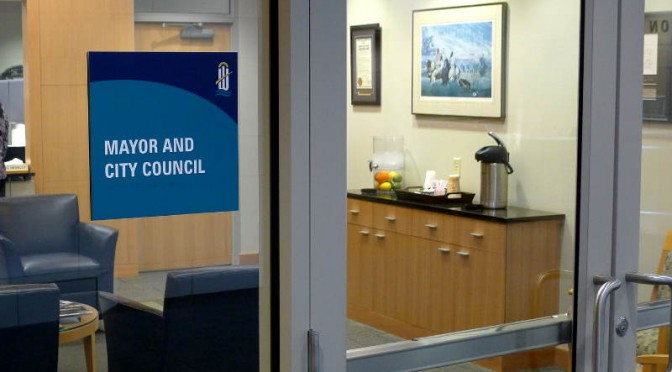Tag: Lavonta Williams
-

Wichita to Ghana, again
News of a Sedgwick County Commissioner’s trip to Africa has raised some controversy, and something like this has been tried before.
-

On big contracts, Wichita has had problems
As Wichita prepares to award a large construction contract, let’s hope the city acts in an ethical manner this time.
-

Education gap on Wichita City Council
Currently there is discussion in Wichita on whether higher education is valued by residents. Following, from April 2011, a look at the educational achievement of the Wichita City Council.
-

Wichita being sued, alleging improper handling of bond repayment savings
A lawsuit claims that when the City of Wichita refinanced its special assessment bonds, it should have passed on the savings to the affected taxpayers, and it did not do that.
-

In Wichita, not your tax dollars
At a Wichita City Council meeting, citizens are told, “These tax dollars are not your tax dollars.”
-

Wichita city council campaign finance reform
Some citizen activists and Wichita city council members believe that a single $500 campaign contribution from a corporation has a corrupting influence. But stacking dozens of the same $500 contributions from executives and spouses of the same corporation? Not a problem.
-

Campaign contribution changes in Wichita
A change to Wichita city election law is likely to have little practical effect.
-

In Wichita, open records relief may be on the way
A new law in Kansas may provide opportunities for better enforcement of the Kansas Open Records Act.
-

In Wichita, bad governmental behavior excused
A Wichita newspaper op-ed is either ignorant of, or decides to forgive and excuse, bad behavior in Wichita government, particularly by then-mayoral candidate Jeff Longwell.
-
Lavonta Williams on the Wichita City Council
A timeline of events from the tenure of Lavonta Williams on the Wichita City Council.
-

Wichita drops taxpayer protection clause
To protect itself against self-defeating appeals of property valuation in tax increment financing districts, the City of Wichita once included a protective clause in developer agreements. But this consideration is not present in two proposed agreements.
-

WichitaLiberty.TV: The need for reform at Wichita City Hall
An episode this week at the Wichita city council meeting highlights the need for campaign finance reform in Wichita. We’ll examine a few incidents and see if there’s a way we can reform Wichita city government so that it is capitalism friendly instead of crony friendly.